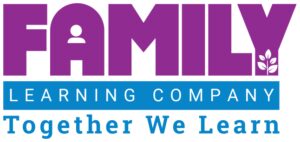Is Your Child a Dual Language Learner? 4 Things You Should Do
December 19,2023

There was a time when many educators as well as parents believed that dual language learning could prove to be a major hindrance in a child’s development of English language skills. But research has shown that children who have a different primary language can use it as a foundation for their English learning. Validating and encouraging their language and culture can play an important role in helping them master new skills while strengthening the ones they already have.
Dual language learners are children below the age of five who are learning English while simultaneously mastering their native language. And if you have a dual language learner in your home, here are a few things you can do to help them:
Raising a dual language learner can be a rewarding yet challenging experience for parents. These children have the unique opportunity to learn and engage with more than one language from an early age, offering numerous cognitive and cultural advantages. However, supporting their language development effectively requires a deliberate approach. Here are four essential steps for parents nurturing a dual language learner:
Embrace Language Diversity and Foster a Positive Environment:
Encourage and celebrate the use of both languages at home. Create an environment where your child feels comfortable expressing themselves in either language without judgment. This atmosphere bolsters their confidence in both languages, nurturing their linguistic abilities. Engaging in diverse reading activities, storytelling, or using family learning software in both languages can reinforce literacy skills while embracing the richness of each language.
Support Phonemic Awareness and Phonics in Both Languages:
Phonemic awareness, recognizing individual sounds, and phonics, understanding letter-sound relationships, are fundamental in language acquisition. Incorporate activities promoting these skills in both languages. Utilize bilingual books, interactive family literacy games, or family learning software designed for dual language learners. These tools enhance literacy across languages, improving reading skills while respecting the linguistic nuances of each.
Encourage Reading Comprehension through Family Engagement:
Reading comprehension is key to language proficiency. Engage in shared reading activities in both languages, encouraging discussions about stories and texts. This strengthens comprehension skills and fosters critical thinking. Family engagement in reading—discussing stories, predicting outcomes, or asking open-ended questions—supports language development and deepens parent-child bonds.
Seek Community and Educational Support:
Engage with communities or educational programs that value and support bilingualism. Connect with other families raising dual language learners. Such interactions provide exposure to diverse cultural experiences while offering a supportive network for sharing resources and strategies. Additionally, consider bilingual or immersion programs where your child can further develop their language skills in a structured educational setting.
Teach them more about your culture
An easy way to make dual language learning more effective is to teach your child about their native culture. Ask them to read up on the food, music, history, and so on, so that they can feel a deeper connection to their heritage.
Encourage them to learn vocabulary in both languages
It is important for dual language learners to learn vocabulary in English as well as their native language because it is a skill that does not transfer. Make sure, however, that you also teach them about context and provide them with opportunities to use these newly learned words in their everyday life.
Use play-based projects
If you want to make the learning process fun for your little one, use play-based projects that will keep them engaged. For instance, you can ask them to make themed projects that allow them to use their new vocabulary as well as concepts they learned during their language training.
Read books that represent your cultural heritage
You can find a wide range of books that celebrate myriad cultures from around the world. Provide your child with access to such books so that they can see their representation in media. This can be a crucial moment of empowerment as well as an opportunity to connect and engage with who they are.
Raising a dual language learner involves consistent efforts to ensure their literacy development in both languages. By embracing language diversity, reinforcing phonemic awareness and phonics, engaging in family reading activities, and seeking community support, parents can empower their child's bilingual journey and promote a strong foundation in literacy.
Dual language learners possess a unique advantage in today's globalized world. By nurturing their linguistic abilities and fostering a strong foundation in literacy across languages, parents set the stage for academic success and cultural appreciation. Encouraging parental involvement in supporting language development not only benefits the child's literacy but also strengthens family bonds and cultural identity.
Through interactive family literacy activities, such as reading together, exploring bilingual resources, or utilizing family learning software, parents can create a stimulating learning environment conducive to language acquisition. Celebrating linguistic diversity at home and seeking educational support outside the home enriches the child's linguistic and cultural experiences, equipping them with valuable skills for the future.
In conclusion, raising a dual language learner involves dedication, cultural appreciation, and continuous learning. By implementing these strategies, parents can actively contribute to their child's bilingual proficiency and promote a lifelong love for language and literacy.
The Family Learning Company offers a wide range of resources for dual language learning, including a family learning software that is designed to build reading and writing skills. Family learning offers an amazing opportunity for parents to learn along with their kids. If the parents aren’t fully literate, it will engage them in the exact same process that their children are going through. Give them a parallel experience learning reading, writing, social and emotional skills to better their own lives, and to model learning for their children. Or, let them compete with their children to see who can master their reading and writing skills faster. Either way, let the parent-child relationship carry the burden of providing the motivation, engagement and persistence that it takes to become truly literate.
If you want your child to benefit from dual language learning, our software is an excellent choice for you.

